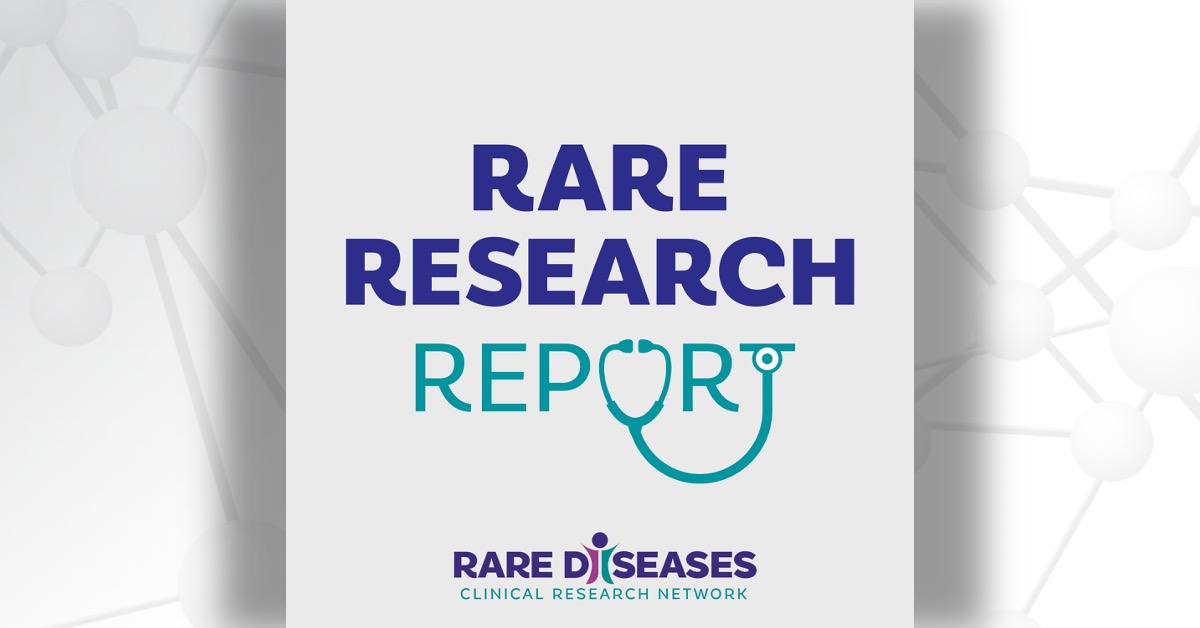Each month, we share summaries of recent Rare Diseases Clinical Research Network (RDCRN) grant-funded publications. Catch up on the latest RDCRN research below.
Jump to:
- Nephrotic Syndrome Study Network (NEPTUNE)
- Phenylalanine Families and Researchers Exploring Evidence (PHEFREE) Consortium
- Primary Immune Deficiency Treatment Consortium (PIDTC)
Listen to these summaries on the Rare Research Report podcast.
Nephrotic Syndrome Study Network (NEPTUNE)
Providing a Snapshot of Pediatric Patients and Lessons Learned from the NEPTUNE Cohort Study
Primary glomerular diseases are a group of conditions that affect kidney function by attacking the glomeruli, which are kidney structures responsible for filtering the blood and removing waste in urine. NEPTUNE is a rare disease network that focuses on patients with minimal change disease, focal segmental glomerulosclerosis, and membranous nephropathy. The NEPTUNE longitudinal cohort study collects detailed demographic, clinical, histopathologic, genomic, transcriptomic, and metabolomic data from patients of all ages to develop a molecular classification for these disorders.
In this review, researchers provide a snapshot of pediatric patients and lessons learned from the NEPTUNE cohort study. The team summarizes key observations and describes the development of the NEPTUNE Match program, which provides individualized guidance about potential clinical trial participation based on the molecular characterization and non-invasive biomarker profile of each patient.
Authors note that NEPTUNE has proven to be an invaluable asset in the study of glomerular diseases in patients of all ages, including children and adolescents.
Modi ZJ, Zhai Y, Yee J, Desmond H, Hao W, Sampson MG, Sethna CB, Wang CS, Gipson DS, Trachtman H, Kretzler M; NEPTUNE investigators. Pediatric contributions and lessons learned from the NEPTUNE cohort study. Pediatr Nephrol. 2024 Jan 18. doi: 10.1007/s00467-023-06256-7. Epub ahead of print. PMID: 38233720.
Phenylalanine Families and Researchers Exploring Evidence (PHEFREE) Consortium
Discussing State-of-the-Art Gene Therapy Approaches for Phenylketonuria
Phenylketonuria (PKU) is a genetic metabolic disorder that increases the body's levels of the amino acid phenylalanine, which can build up to harmful levels if left untreated. Patients with PKU are treated with dietary therapy. However, these dietary restrictions are complicated and often difficult to follow, highlighting the need for new therapies and ultimately a cure.
In this review paper, researchers summarize, compare, and evaluate state-of-the-art gene therapy approaches for PKU. Methods include recombinant viral and non-viral vector delivery; gene addition; genome, gene, or base editing; and gene insertion or replacement. A list of current and planned clinical trials for PKU gene therapy is also included.
Authors note that this review can help advance scientific understanding and efficacy testing, paving the way for safe and efficient therapies for patients with PKU.
Martinez M, Harding CO, Schwank G, Thöny B. State-of-the-art 2023 on gene therapy for phenylketonuria. J Inherit Metab Dis. 2024 Jan;47(1):80-92. doi: 10.1002/jimd.12651. Epub 2023 Aug 3. PMID: 37401651; PMCID: PMC10764640.
Primary Immune Deficiency Treatment Consortium (PIDTC)
Chronic granulomatous disease (CGD) is a type of primary immunodeficiency characterized by life-threatening infections and inflammation. Hematopoietic cell transplantation (HCT) is the definitive treatment for CGD. However, questions remain about patient selection and how active disease impacts transplant outcomes.
In this study, researchers investigated outcomes of allogeneic (donor) HCT in patients with CGD. The team performed an analysis of 391 participants treated either with or without HCT, following outcomes over several years.
Results show that HCT quickly and durably resolves CGD symptoms, lowers the burden of the disease, and has excellent survival rates. Patients with active inflammation or infection are candidates for HCT. To avoid complications from the development of additional medical conditions, authors note that HCT should be considered early in patients with CGD.
Leiding JW, Arnold DE, Parikh S, Logan B, Marsh RA, Griffith LM, Wu R, Kidd S, Mallhi K, Chellapandian D, Si Lim SJ, Grunebaum E, Falcone EL, Murguia-Favela L, Grossman D, Prasad VK, Heimall JR, Touzot F, Burroughs LM, Bleesing J, Kapoor N, Dara J, Williams O, Kapadia M, Oshrine BR, Bednarski JJ, Rayes A, Chong H, Cuvelier GDE, Forbes Satter LR, Martinez C, Vander Lugt MT, Yu LC, Chandrakasan S, Joshi A, Prockop SE, Dávila Saldaña BJ, Aquino V, Broglie LA, Ebens CL, Madden LM, DeSantes K, Milner J, Rangarajan HG, Shah AJ, Gillio AP, Knutsen AP, Miller HK, Moore TB, Graham P, Bauchat A, Bunin NJ, Teira P, Petrovic A, Chandra S, Abdel-Azim H, Dorsey MJ, Birbrayer O, Cowan MJ, Dvorak CC, Haddad E, Kohn DB, Notarangelo LD, Pai SY, Puck JM, Pulsipher MA, Torgerson TR, Malech HL, Kang EM. Genotype, oxidase status, and preceding infection or autoinflammation do not affect allogeneic HCT outcomes for CGD. Blood. 2023 Dec 14;142(24):2105-2118. doi: 10.1182/blood.2022019586. PMID: 37562003.
The Rare Diseases Clinical Research Network (RDCRN) is funded by the National Institutes of Health (NIH) and led by the National Center for Advancing Translational Sciences (NCATS) through its Division of Rare Diseases Research Innovation (DRDRI). Now in its fourth five-year funding cycle, RDCRN is a partnership with funding and programmatic support provided by Institutes, Centers, and Offices across NIH, including the National Institute of Neurological Disorders and Stroke, the National Institute of Allergy and Infectious Diseases, the National Institute of Diabetes and Digestive and Kidney Diseases, the Eunice Kennedy Shriver National Institute of Child Health and Human Development, the National Institute of Arthritis and Musculoskeletal and Skin Diseases, the National Heart, Lung, and Blood Institute, the National Institute of Dental and Craniofacial Research, the National Institute of Mental Health, and the Office of Dietary Supplements.


